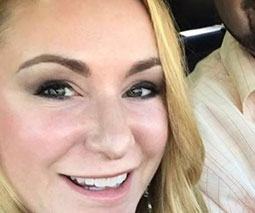How to deal with the very real issue of gender disappointment

When I came home for the hospital with my second daughter, my Portuguese neighbour asked what I’d had. But when I proudly told her that we had another little girl, her response was, “Oh well, never mind, maybe next time you’ll get a boy.’’
I was so surprised that I just smiled and kept walking. I didn’t like to tell her that at aged 42, there probably wouldn’t be any more babies for me. And quite frankly, I was lucky to have a second child, whatever the sex might be.
However, for some people, gender disappointment is a very real issue, and like any grief, if not properly dealt with, it can lead to all sorts of problems down the track.
Great expectations
Gender disappointment is not as straight forward as it sounds. According to Kirsty Levin, a psychologist at The Parents Village, there are many different reasons for feeling this way. For some parents, there are certain cultural or religious expectations, while for others, there is a deep longing for a particular gender.
“There’s all of the fantasy elements that build up that sense of expectation of having a certain gender or sex with your firstborn, potentially when you imagine yourself doing certain activities and relating to your child in that way,” says Kirsty. “It’s often the case that women like to fantasise about having a girl, and men fantasise about having a boy, simply because it’s the most familiar and therefore it seems to be the easiest and most straightforward fantasy that they can conjure up to themselves.”
For some parents, Kirsty says that the reaction stems from their personal experiences growing up, making them worried or fearful for their child. “Maybe they had a terrible upbringing or a terrible history associated with their gender or their sex,” she says.
There’s also the issue of hereditary health problems that could be inherited by one particular gender. “There’s the potential for people to worry about things that might only be brought down into a female child or male child,” says Kirsty.
Long term effects
Gender disappointment is difficult for parents to talk about, for fear of being considered selfish or ungrateful, particularly if there are others around them having difficulties conceiving. But Kirsty says that their feelings are valid and need to be acknowledged. “Everyone’s own experience is their own for a reason,” she says. “There’s so much bundled up in our history and our perceptions of ourselves and our perceptions of our family and friends. We have to treat ourselves as a unique individual in that case.”
Kirsty believes that if a parent doesn’t address the feelings of gender disappointment, the effects can be far-reaching. “It can affect attachment and bonding if it’s not dealt with,” she says. “And it can absolutely influence or impact a sense of anxiety or depression around how they feel about being a mother, or how confident they feel about being able to mother or father this child that they didn’t expect to be this sex.”
How to cope with it
Kirsty firmly believes that the best way to deal with gender disappointment is to find the right support. “First and foremost, I think parents need to acknowledge it and allow themselves to grieve through that process,” she says. “But to do that effectively and safely, they need to find a safe person, someone that is really going to listen to them and empathise with their situation.”
This might be a therapist, a counsellor, even a close friend or family member, anyone that truly understands what’s going on. “Having a really strong sounding board to be able to vent their emotions and really properly grieve that lost dream is really important because if you can’t get past those initial surges of sadness and despair and loss, I think it’s very hard to move on from that,” says Kirsty. “It’s almost the same grieving cycle that you would have from a death in the family.”
Time to move on
While Kirsty recommends taking time to grieve, she also believes in setting a deadline. “It’s important to set that time frame for how long you’re prepared to grieve and really deeply grieve,” she says. “And I think it’s equally important to almost set a time frame to say, ‘Right now I need to work on myself; I need to partner with my husband, wife, whoever it is in that unit, to work through that effectively and re-frame the way that I’m going to think, moving forward.'”









